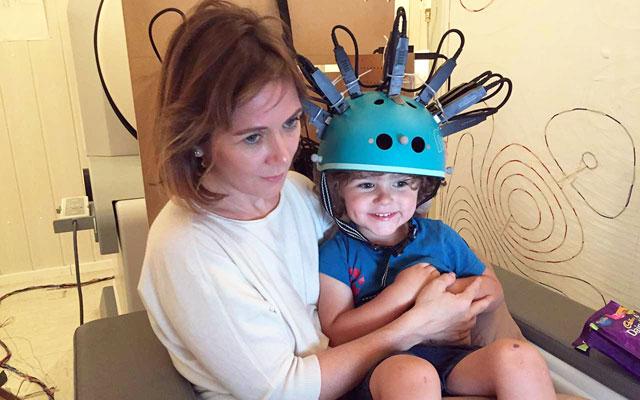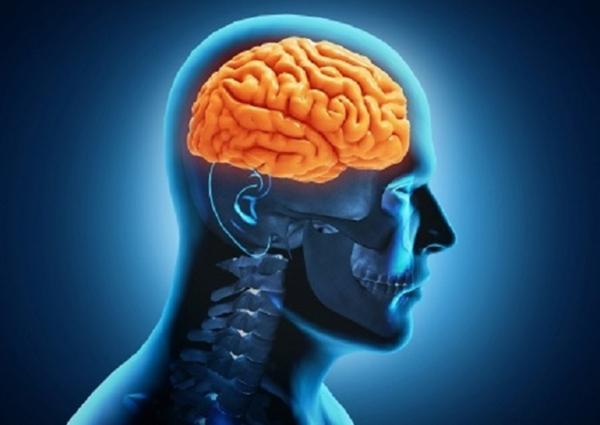You are here
Brain-scanning helmet helps track children in motion
By AFP - Nov 07,2019 - Last updated at Nov 07,2019

AFP photo
NEW YORK —Scientists have used a modified bike helmet to create a device that can monitor brain activity in children in realtime.
The technology may eventually be used on patients with neurodevelopmental disorders such as autism and epilepsy, they reported in Nature Communications.
Researchers inserted a wearable magnetoencephalography (MEG) device into a standard bike helmet, and successfully recorded the brain’s response to maternal touch in children aged two to five.
With standard equipment, it is very difficult to scan children under the age of eight, said Matthew Brookes, who worked on the device and authored the report.
“This is because in younger children, their heads are too small to fit the scanner properly and that means loss of data quality,” he told AFP.
“In addition younger subjects tend to move more.”
The device is equipped with small, lightweight sensors that prevent the scan from being affected by head movement.
Children can wear replicas of the helmet while at home to reduce anxiety during the scanning, the researchers said.
The technology isn’t limited to children.
Brookes and his colleagues used larger versions of the device to record brain activity on a teenager playing video games, and a 24-year-old playing the ukelele.
Brookes said his colleagues at University College London were working on the clinical use of the MEG device — including diagnosis and surgical mapping — for adults and children with epilepsy.
He is hopeful that applications can be expanded to other conditions, such as brain injury, mental health and dementia.
“Obviously at the moment it remains nascent technology and is in the hands of clinical researchers. However, we hope that it will be used to scan patients within two to three years,” Brookes said.
Related Articles
Despite some criticism of bike helmets for not being protective enough, they do cut the risk of severe traumatic brain injury (TBI) by half
WASHINGTON — Researchers have found “different patterns” in brain scans among children who record heavy smart device and video game use, acc
LAS VEGAS — The next frontier for the tech sector is the human brain.A new breed of neuro-hacker is finding ways to capture and manipulate b

















